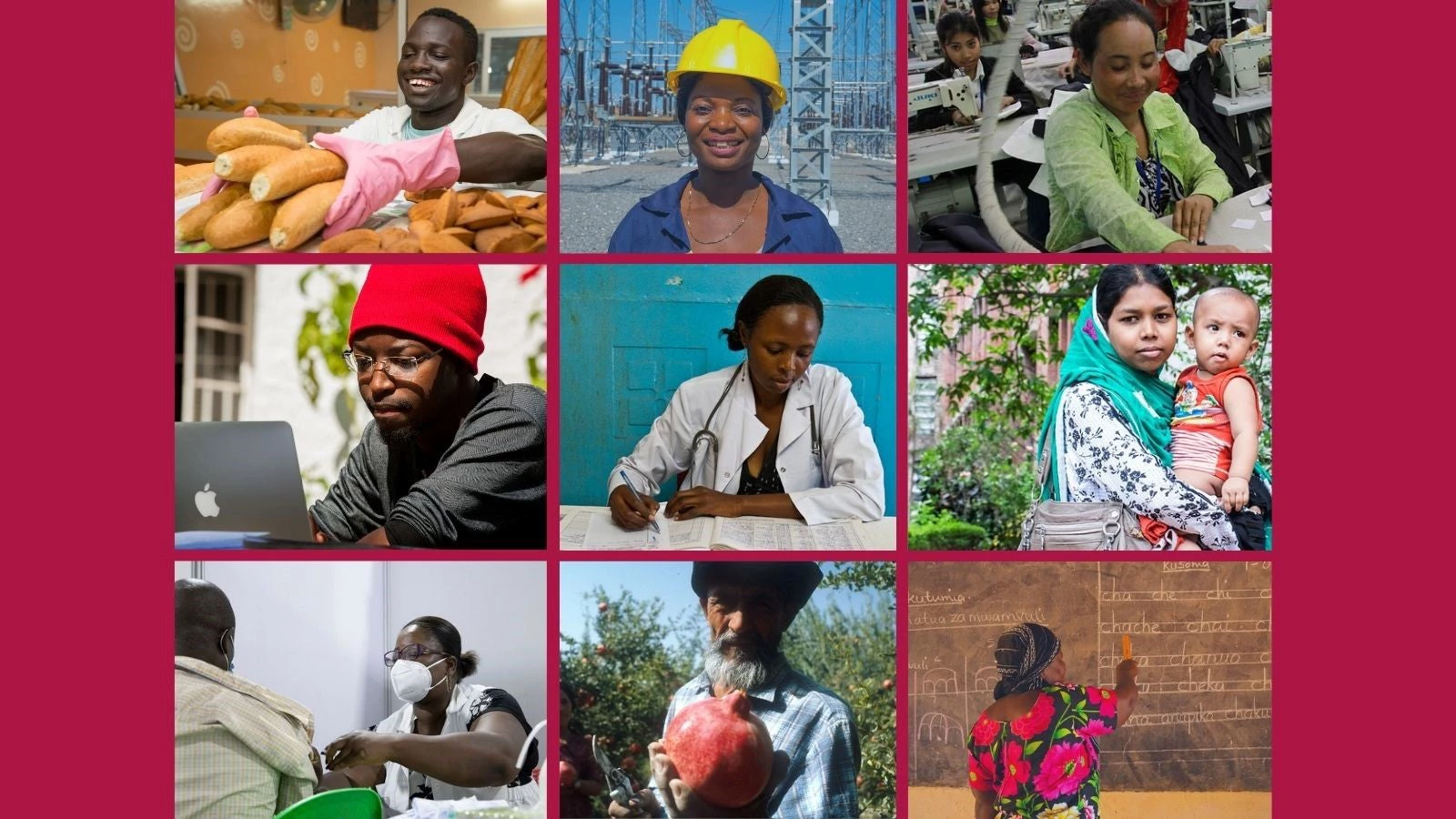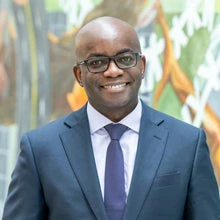A job can be transformational. It is a source of income and sustenance. Of identity and fulfillment. Of routine and learning. It can also provide the support that cushions the blow of a major multidimensional shock like a global pandemic. Yet in the world’s poorest countries— served by the World Bank’s International Development Association (IDA)—the need for jobs was high even before COVID-19. Around 20 million jobs needed to be created each year for the next decade, just to keep pace with youth entering the labor market. Therefore, we are watching the world’s most vulnerable people being made even more susceptible.
COVID-19 has now left many workers around the world in the lurch. In 2020, lost working hours totaled around 255 million full time jobs, which is four times the losses during the 2009 global financial crisis. It also took a toll on avenues for economic transformation: revenues have fallen, while demand for fiscal spending has risen steeply. Trade in services remains low. Global value chains are still adjusting, and uncertainty has affected the ability to reallocate resources to more productive uses.
These impacts are especially apparent in my beloved home, the continent of Africa, where the cost of inaction is precariously high. It worries me that if my younger self were joining the African job market today, the path to towards my current role would have been much steeper than it was a few decades ago. COVID-19 has dimmed the long-term prospects for a generation. This is because deeply rooted structural weaknesses have amplified the toll of COVID-19. For example, 86 percent of total employment in Africa is informal, with women and other disadvantaged groups even less likely to be in formal employment. This means limited fiscal revenue for the government to provide public services. It also means more workers lack safety nets and are more vulnerable to income loss; the toll will reverberate across generations.
Still, we are also seeing that it’s not too late to take action that drives a resilient recovery. I find a deep sense of hope in IDA-financed projects like GEWEL back home in Zambia, where “livelihood packages” are helping women turn piecemeal work into viable microenterprises. In Côte D’Ivoire, IDA’s SWEDD project is broadening the realm of possibilities for young people like Alice. Across West Africa, the IDA Private Sector Window is helping thousands of Small and Medium-Sized Enterprises (SMEs) access finances. Across Eastern and Southern Africa, 90 IDA-financed Centers of Excellence are fostering a new generation of scholars.
In other parts of the world too, there is hope. In South Asia, an IDA project in Bangladesh facilitated job creation and more than $3.9 billion in direct private investment. And in the Middle East, IDA is working with UNDP to create economic opportunity amid conflict in Yemen. The success stories are plentiful.
IDA has proven again and again that it can help close gaps that leave the poorest people behind. Thanks to an extensive global footprint, network of experienced partners and ability to respond with speed, IDA is uniquely positioned to support the 74 poorest countries in Africa and across the world. Grounded in a track record of responding to crises, IDA is focused on the immediate- and long-term: It is helping countries address immediate needs to minimize job losses and mitigate risks, while also helping them seize long-term job creation opportunities in a world transformed by COVID-19.
This will include identifying and prioritizing high-potential sectors that can drive job creation in a post-COVID-19 world (for example, climate-friendly sectors can drive green jobs); looking at the quality of jobs and skills; supporting SMEs; catalyzing private sector investment; and creating markets, including in the most fragile and difficult settings. We are investing in infrastructure, in agriculture, in education, in new technologies, to be able to deliver more and better jobs—for everyone.
Next month, a historic early replenishment of IDA culminates, as the international community gathers in solidarity for the most vulnerable countries. With the cost of inaction as high as we know it will be, IDA and its stakeholders stand ready to step up to ensure a green, resilient and inclusive recovery that puts people and jobs at the heart of solutions.
The blog is part of a series on ways to ensure a resilient recovery from COVID-19 in the world’s poorest countries. For the latest, follow @WBG_IDA and #IDAworks.



Join the Conversation